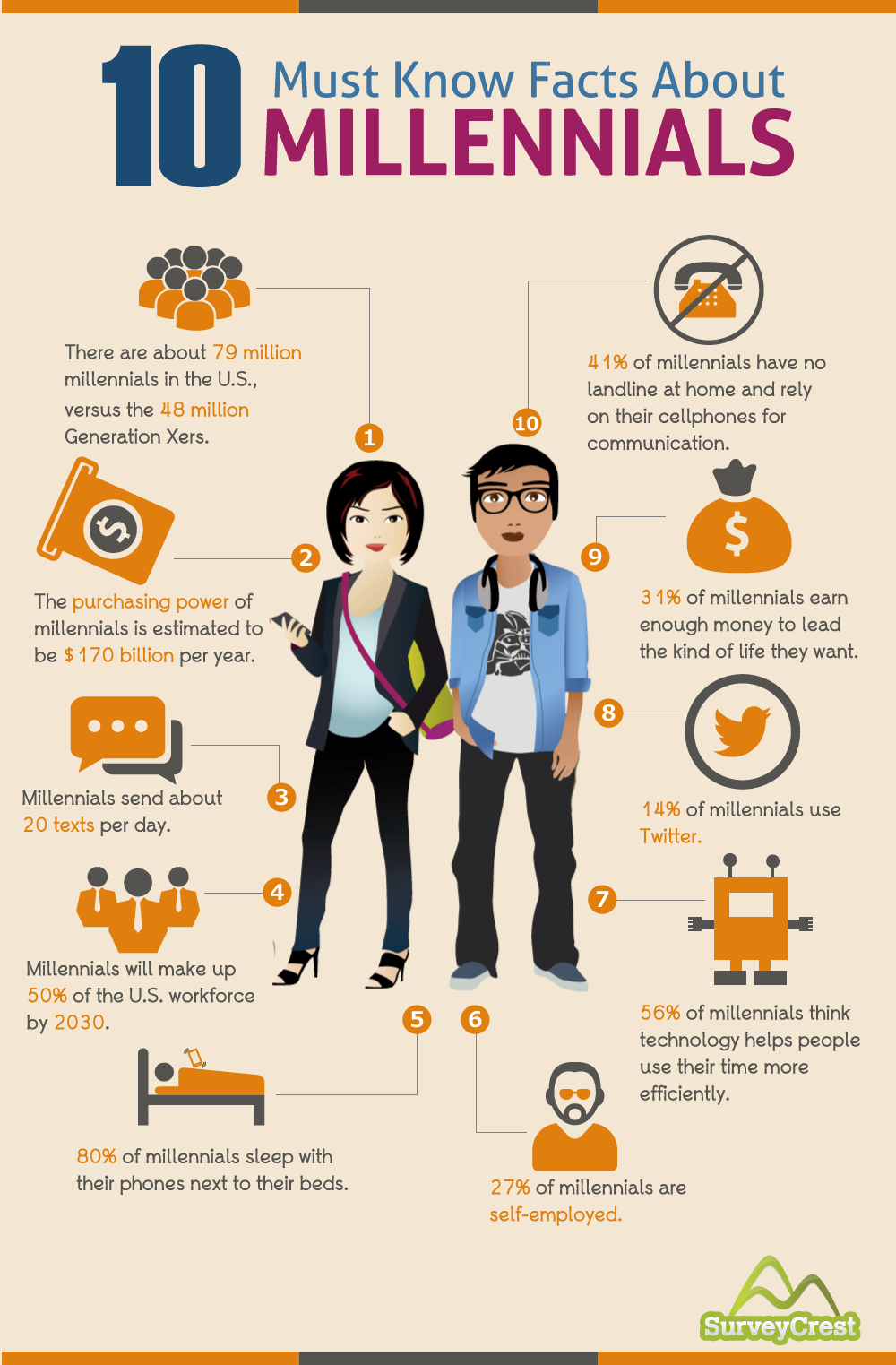Understanding Millennials: Birth Years, Traits & 2024 Insights
Are you a Millennial? If you were born between 1981 and 1996, then the answer is a resounding yes, and you're part of a generation that's shaping the world in profound ways.
The term "Millennial," also known as Generation Y, has become ubiquitous in modern discourse. It's a label that attempts to capture the essence of a generation, a cohort of individuals who share a common set of experiences, formative years, and cultural touchstones. But what exactly defines a Millennial, and why does this demographic group continue to garner so much attention?
Millennials, as defined by most sources, were born between 1981 and 1996. This timeframe places them between Generation X (born roughly between 1965 and 1980) and Generation Z (born from the mid-1990s to the early 2010s). The boundaries, however, aren't always rigid. Different research organizations and commentators may adjust the dates by a year or two, reflecting the inherent complexities of defining a generation.
The origin of the term "Millennial" can be traced back to the book Generations (1991) by William Strauss and Neil Howe. They coined the term, recognizing that this cohort would come of age at the dawn of a new millennium, making it an appropriate moniker. This generation would be the first to reach adulthood in the 21st century.
Millennials' lives have been profoundly shaped by technological advancements. They came of age as the internet transitioned from a novelty to an essential part of everyday life. Home internet connections, personal computers, and the early stages of social media were all integral parts of their formative years. They witnessed the rise of smartphones, transforming communication and information access.
Beyond technological shifts, the Millennial generation also navigated significant historical events. The September 11 attacks, the subsequent wars, and the increased emphasis on homeland security left an indelible mark. They have also come of age during a period of economic disruption, characterized by the 2008 financial crisis and its lasting impact on employment, housing, and financial security.
The Millennial generation has become the most racially and ethnically diverse adult generation in the U.S.
| Category | Details |
|---|---|
| Name | Millennials (Generation Y) |
| Birth Years | 1981 - 1996 (Approximate, varies slightly depending on the source) |
| Age in 2024 | 28 to 43 years old |
| Key Experiences |
|
| Characteristics & Trends |
|
| Economic Hardships |
|
| Cultural Touchstones |
|
| Associated Values |
|
| Strengths |
|
| Challenges |
|
| References | Pew Research Center |
The impact of these formative experiences has led to some commonly observed characteristics among Millennials. They are often described as technologically proficient, having grown up with the internet and social media. They are also often considered more open-minded and tolerant, valuing diversity and inclusivity. Millennials tend to prioritize work-life balance and are active in social causes, often advocating for issues like environmental sustainability and social justice.
However, the Millennial generation has also faced unique challenges. They have come of age during a period of economic instability, grappling with rising student loan debt, wage stagnation, and difficulties in the housing market. These economic hardships have shaped their outlook on financial security and their approach to career paths.
Furthermore, the constant barrage of information and the prevalence of social media have also contributed to new kinds of challenges. The constant connectivity, can lead to concerns about mental health and well-being.
The ongoing debate about the precise cut-off point between Millennials and Generation Z highlights the fluidity of generational boundaries. While 1996 is a generally accepted demarcation, there are nuances to consider. Factors such as exposure to specific technologies, cultural shifts, and shared experiences play crucial roles in shaping each generation's distinct characteristics.
Understanding these defining elements allows us to understand the Millennial perspective. Their experiences, values, and the challenges they face are shaping the world, and their influence will continue to be felt for years to come.
The concept of generations is not just about birth years, it's about a shared sense of identity formed by similar experiences. Events like the September 11 attacks, the rise of the internet, and economic downturns are critical to shaping a generation's collective memory. Cultural touchstones, from specific music genres and television shows to the emergence of new technologies, further bind people together.
The characteristics of different generations can be seen in their approaches to work, relationships, and civic engagement. Baby Boomers, who came of age during a period of economic prosperity, may have different perspectives than Generation X, which grew up in a time of economic uncertainty and increased social complexity. Millennials, with their early exposure to the internet and social media, are likely to differ in their behaviors, priorities, and viewpoints.
The Pew Research Center, along with other research organizations, conducts extensive research on the different generations. They are interested in the impact of social and economic change, and the ways each generation navigates the modern landscape.
It's crucial to acknowledge that generational labels are generalizations. They don't fully capture the diversity within each cohort. There are significant variations based on factors like race, socioeconomic status, location, and individual circumstances. Not every Millennial will fit perfectly into the described patterns, however, these broad characteristics provide a framework for understanding societal trends and individual behaviors.
Understanding the Millennial generation is vital for anyone seeking to understand the present and the future. Their perspectives, values, and the unique challenges they face are at the forefront of important changes across society.


